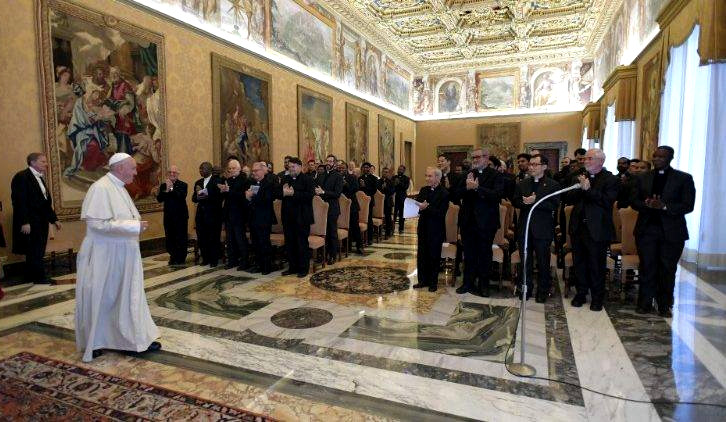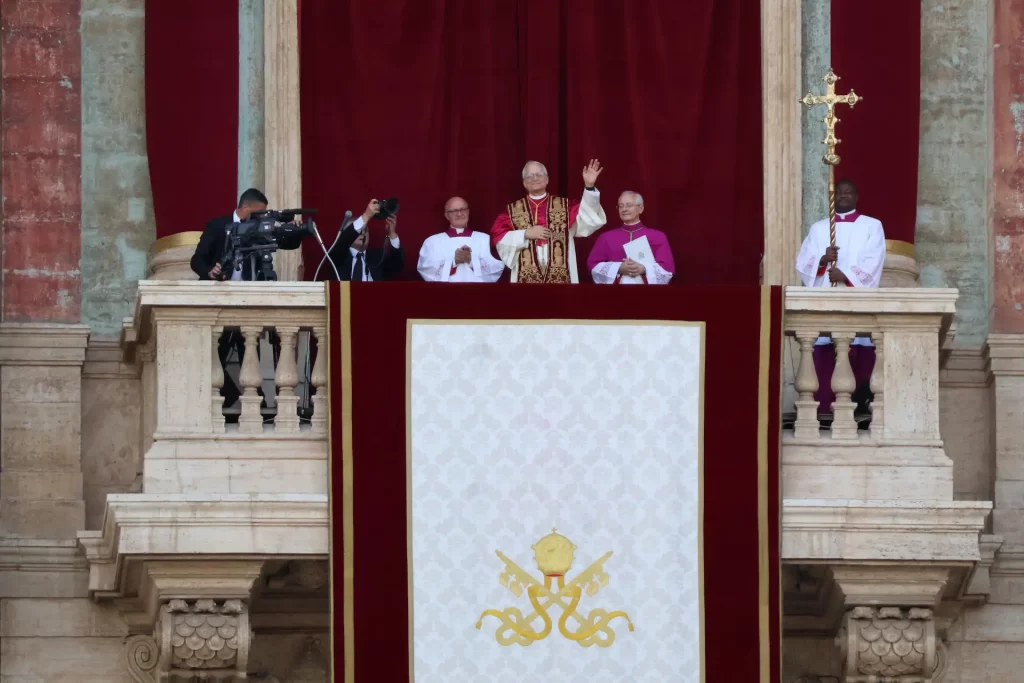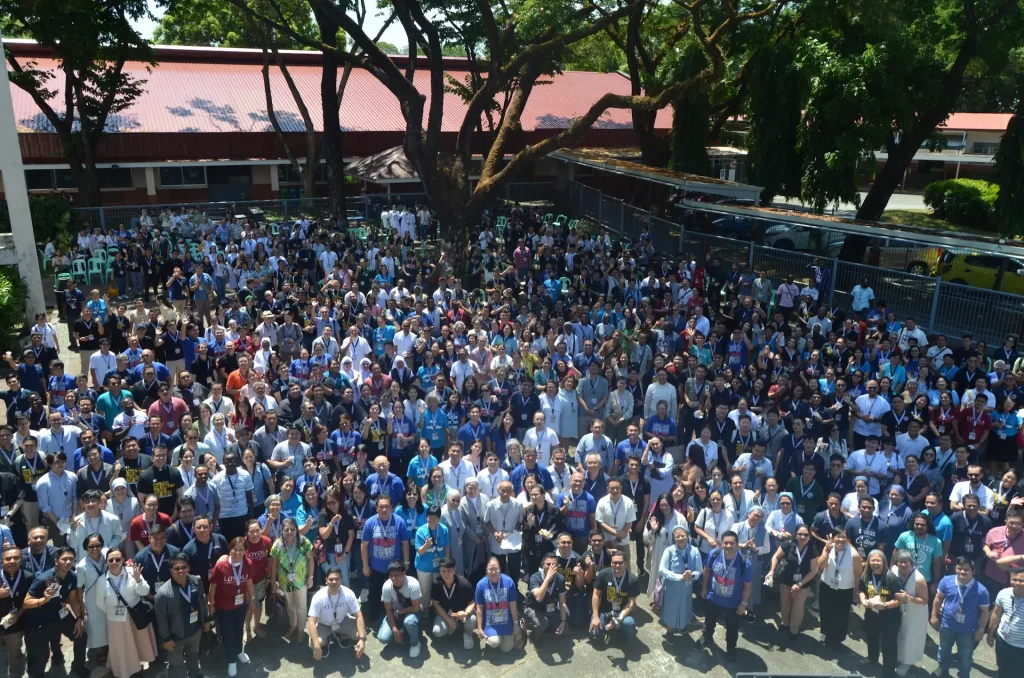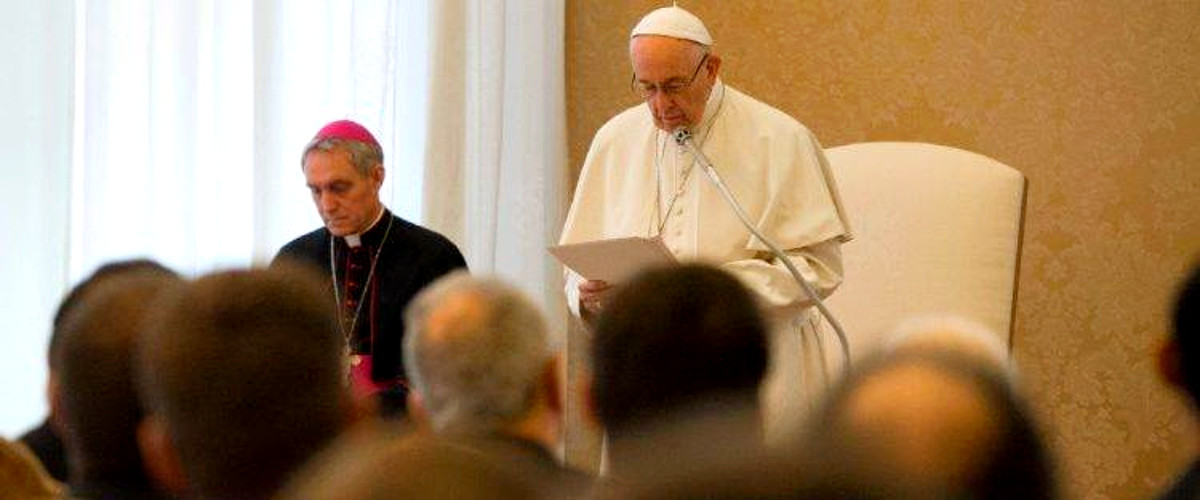
On December 3, the Collegio Internazionale del Gesù in Rome celebrated the 50th anniversary of its founding by Fr Pedro Arrupe. Pope Francis received some 60 staff and students from the college’s international community and urged them to base themselves in Jesus, to grow and take root against every spiritual worldliness and to mature in their mission.
The Pope recalled that it was the feast of St Francis Xavier, who wrote to his companions, “I beg you, in all your matters to base yourselves totally in God”. Pope Francis reminded them: “God founded you as Jesuits: this Jubilee is a moment of grace for remembering and feeling you are with the Church, in a Company and with a belonging that has a name: Jesus”.
The Pope also reminded his companions that they are called “to grow, sinking your roots” because “to have roots is to have a well-grafted heart, which in God is able to expand”. The heart that does not expand atrophies, he cautioned.
“To God, semper maior, we respond with the magis of life, with a clear and irrepressible enthusiasm, with the fire that blazes inside, with that positive tension, always growing, that says ‘no’ to any compromise”, he said.
Pope Francis told them, however, that “there is no growth without crisis” but assured them, “do not be afraid as there is no fruit without pruning or victory without struggle”.
He described spiritual worldliness, which leads to clericalism, as the greatest danger of our time, just as Fr Henri de Lubac SJ referred to it as “the worst evil that can happen to us”.
“If the worldliness affects the roots, goodbye fruit and goodbye plant”, said the Pope, but “if growth is a constant action against one’s ego, there will be much fruit.”
He identified two signs of growth: freedom and obedience. These two virtues advance if they walk together, he said. Freedom is essential, because “where the Spirit of the Lord is, there is freedom”. He wished them “to be free sons who, united in diversity, struggle every day to conquer the greatest freedom: that of yourselves”. In this, “Prayer will be of great help”, he said. “It is the legacy that Fr Arrupe left us, his ‘swan song.’”
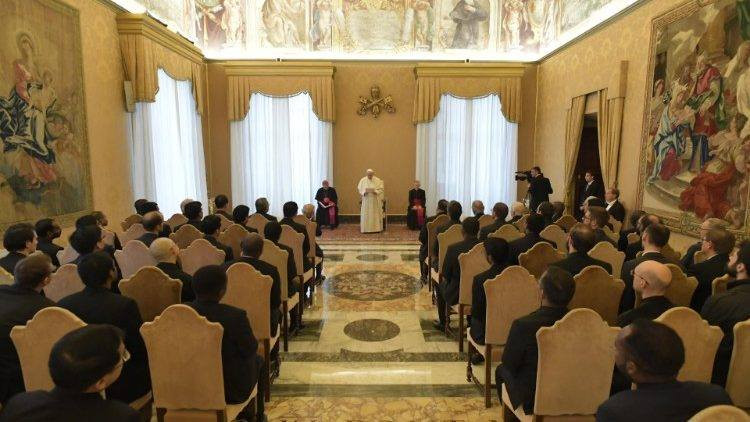
He continued that just as for Jesus the food of life is to do the will of the Father, they too must obey the Father and of the fathers that the church gives. “Freedom and obedience”, he said, “give life to that creative way of acting with the Superior.”
Finally, he told them: “One does not mature in the roots and in the trunk, but by putting out the fruits, which fertilise the earth with new seeds”. Thus Jesuits are called to be present “at the most intricate junctures, in the border lands, in the deserts of humanity”.
Pope Francis said a Jesuit may find himself like a lamb among wolves, but he should not be like the wolves. Instead, he should remain as a lamb. “In this way the Shepherd will reach him there, where his lamb is.”
Photos courtesy of Collegio Internazionale del Gesù Facebook page

